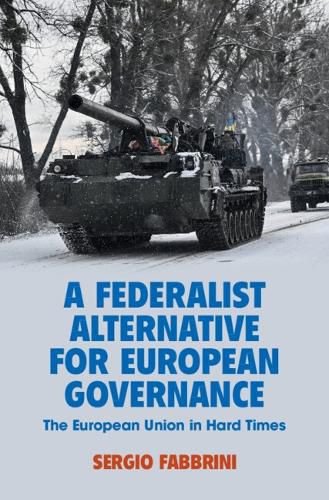Readings Newsletter
Become a Readings Member to make your shopping experience even easier.
Sign in or sign up for free!
You’re not far away from qualifying for FREE standard shipping within Australia
You’ve qualified for FREE standard shipping within Australia
The cart is loading…






How did the European Union (EU) deal with the crises of the 2010s and 2020s? These crises arose in policy realms that were the province of national governments, so the European Council was the driving institution for managing them. National governments were able to take decisions, but their decisions were contradictory and unaccountable, and regularly hindered by divisions between them. In order to manage a policymaking process dominated by the claims of national and sub-regional governments, Sergio Fabbrini argues that intergovernmental governance has had to transform the EU into an international organization. Fabbrini shows that differentiated integration would further distance the EU from the project of an 'ever closer union' and, on the basis of a comparative federalism approach, he proposes an alternative paradigm of a multi-tier Europe with a federalist core to balance national sovereignties and supranational authority.
$9.00 standard shipping within Australia
FREE standard shipping within Australia for orders over $100.00
Express & International shipping calculated at checkout
How did the European Union (EU) deal with the crises of the 2010s and 2020s? These crises arose in policy realms that were the province of national governments, so the European Council was the driving institution for managing them. National governments were able to take decisions, but their decisions were contradictory and unaccountable, and regularly hindered by divisions between them. In order to manage a policymaking process dominated by the claims of national and sub-regional governments, Sergio Fabbrini argues that intergovernmental governance has had to transform the EU into an international organization. Fabbrini shows that differentiated integration would further distance the EU from the project of an 'ever closer union' and, on the basis of a comparative federalism approach, he proposes an alternative paradigm of a multi-tier Europe with a federalist core to balance national sovereignties and supranational authority.